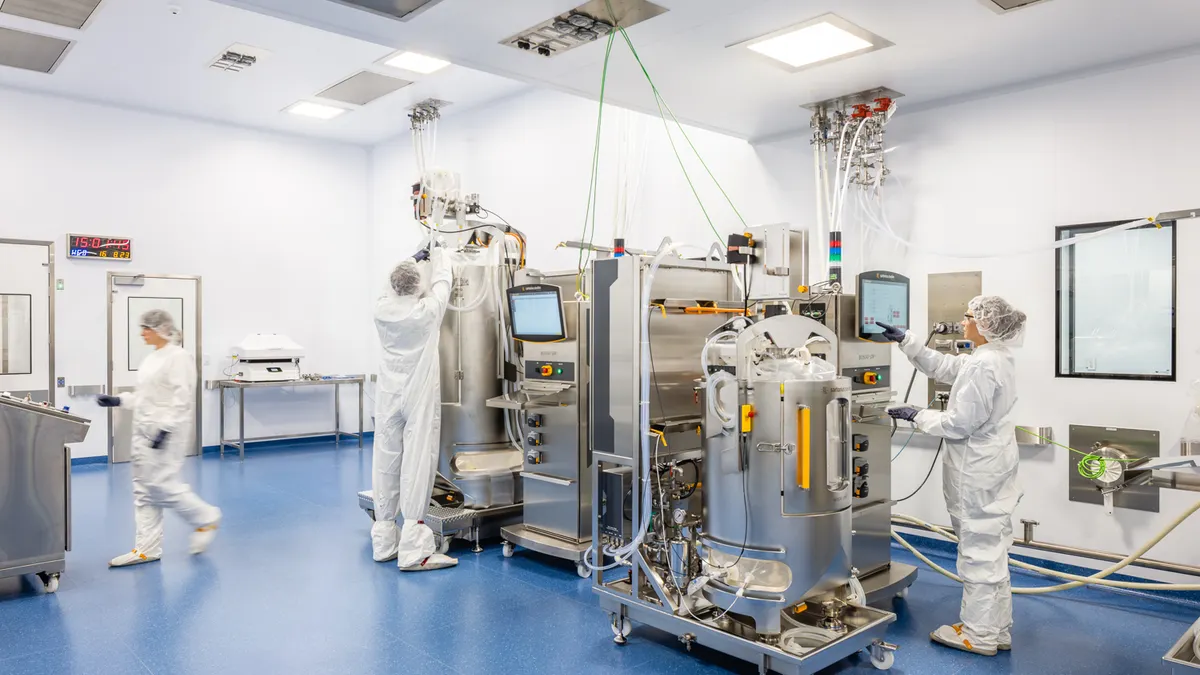In the rapidly evolving landscape of biopharmaceuticals, the integration of robust digital systems has become paramount. Companies have more digital systems than ever before, but when these systems are disconnected from one another, it detracts from the efficient coordination needed to bring new innovative therapies to the market. As the demand for development & manufacturing services surges for complex medicines such as cell therapies, biologics, and sterile injectables, it necessitates agile, transparent, and data-rich manufacturing environments.
CDMOs adapting to meet this surge in demand are feeling the pressure to commit to digital transformation. Improving biomanufacturing operational efficiency is crucial for life sciences companies to expedite the delivery of medicines to patients and ensuring seamless integration across domains should be central to their approach.
Leveraging Cloud-Based Solutions
Traditional CDMO tech transfer processes present a number of challenges with consumable inventory management, data provenance, and consumable cost recovery when running experiments on behalf of clients. Typically, consumable costs are roughly factored into the overhead of the project, which can create significant issues in two critical areas. First, tracking exact consumables across the experiments they were used in is essential for data integrity and auditability of the production process. Without precise tracking, it becomes difficult to ensure that the right materials are used in the right experiments, potentially compromising the quality and reproducibility of results. Second, an imprecise charging methodology can lead to inefficiencies in chargeback processes for financial teams. Leftover reagents that were initially factored into overhead but not used effectively can result in wasted resources or, in some cases, complicated efforts to offer these excess consumables back to clients. For Resilience, these challenges underscored the need for a more accurate and efficient approach to consumable inventory management and cost recovery within CDMO operations.
To enhance their digital infrastructure, Resilience partnered with Amazon Web Services (AWS) to build a lab supply chain tracking platform. Using AWS Lambda and Amazon EventBridge, they created an event-driven architecture that automates transactions between systems. By integrating applications like Benchling and Coupa, Resilience streamlined ordering, warehousing, and consumption workflows. This platform provided traceability for over 1,000 unique orders in its first three months, equating to over $1 million in previously untracked spend.
Building a Unified Data Ecosystem
At the heart of Resilience's data strategy is robust data platform that supports data processing and helps to increase efficiencies by streamlining cross-organizational communications between procurement, finance, supply chain operations, project management, and more. The program interconnects 30 data products across six domains, enabling near real-time reporting for more than 25 applications and reducing human error by eliminating the need for manual data transfer and transcription. While currently used as an internal tool, Resilience is transforming the cloud-based capability into a program that clients can use to remotely and securely access their data, see the status of their programs, and integrate into their own systems.
"This allows us to provide transparent and centralized visibility of quality, ERP, lab, and process monitoring data to our clients in almost real-time," explains Chuck Lemire, VP of Enterprise Systems at Resilience. "We can accelerate manufacturing timelines by reducing batch cycle times—something that’s become crucial in the race to market."
Real-World Impact: Enhancing Clinical Outcomes
The practical benefits of digital initiatives are evident. In a recent case, a Resilience client faced a tight deadline to produce a small drug substance batch. The process was susceptible to routine failures, posing a risk to the project's timeline.
By deploying their data platform, Resilience monitored critical quality attributes in real-time, with automated alerts for any deviations. They also synchronized bioreactor video feeds with data sets, enabling immediate observation and intervention. This proactive approach prevented batch failure and provided the client with actionable feedback to improve their manufacturing process.
The integration of robust digital systems in biopharmaceutical manufacturing is no longer optional—it's essential. Leveraging advanced data platforms and cloud-based solutions can enhance operational efficiency, ensure regulatory compliance, and ultimately improve clinical outcomes. As the industry continues to evolve, embracing digital transformation will be key to increasing patient access to innovative therapies.









